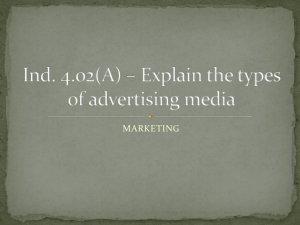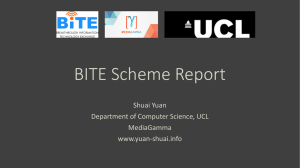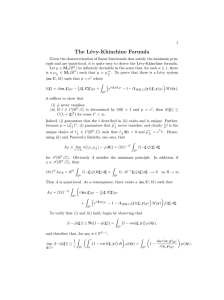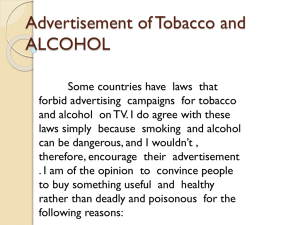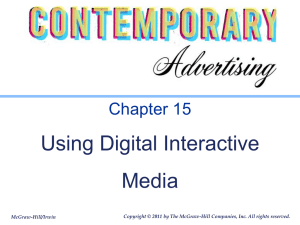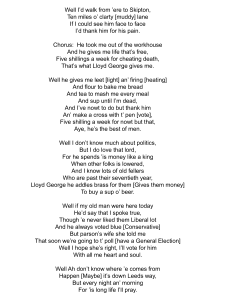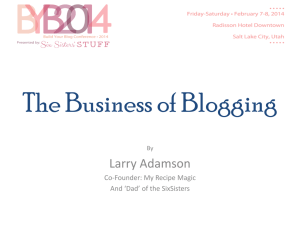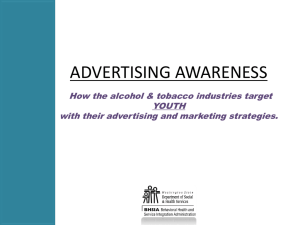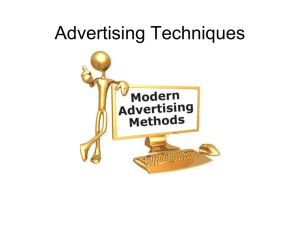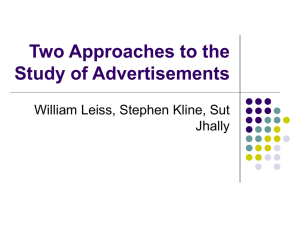Commercial-Academic
advertisement
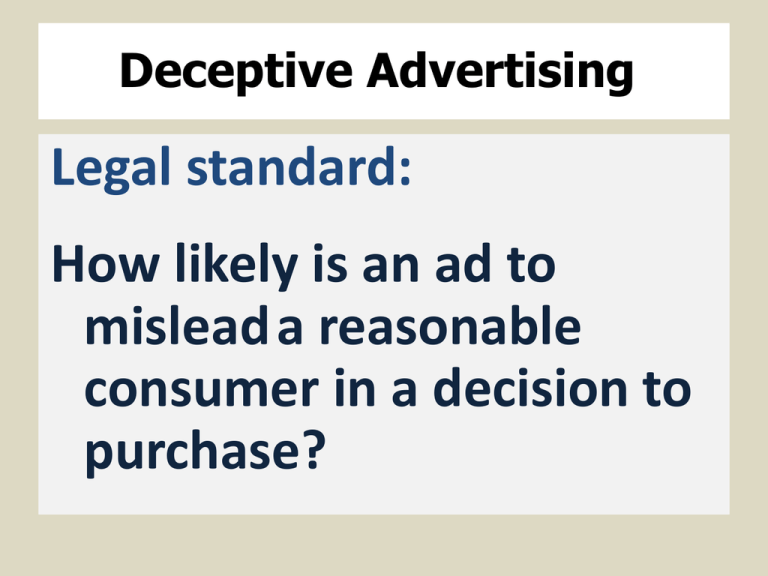
Deceptive Advertising Legal standard: How likely is an ad to mislead a reasonable consumer in a decision to purchase? Valentine v. Chrestensen (1942) City sanitation ordinance against commercial leafleting F.J. Chrestensen advertised U-boat tours Second printing included political message. Commercial ad & price on the front “Political protest” printed on the back Supreme Court held the handbill was primarily advertising lacking First Amendment protection. Pittsburgh Press v. Pittsburgh Human Relations Comm. (1973) Help Wanted ads separated into male and female sections Organization of ads enabled illegal employment discrimination Didn’t affect editorial content Dissents note problems w/ government reviewing newspaper layout Pennsylvania Human Rights Comm. v. Pittsburgh Press (1979) PA Sup Ct ruling, cert denied by SCOTUS Distinguished between SITUATION Wanted ads and HELP Wanted Jobseekers could list their own gender, race or religion. Law only prohibits discrimination in hiring by employers, not individuals’ right to own attributes Central Hudson Gas and Electric v. PSC of NY (1980) Four-part test: Is advertisement deceptive or product illegal? Does the state have a valid interest in regulating the speech? Does the law properly advance that interest? Is the law narrowly tailored? Greater New Orleans Broadcasting Assoc. v. U.S. (1998) FCC banned broadcast of casino ads in Louisiana and Mississippi, except tribal casinos & govt lotteries. Casinos could advertise on billboards and in newspapers Federal ban unconstitutional as applied to Louisiana-based broadcasters because advertising legal service Govt’s rationale that “powerful sensory appeal” of television and radio makes broadcast ads more enticing of gambling overturned. 44 Liquormart v. Rhode Island (1996) RI banned ads including liquor prices in newspapers and other media, & even the word “sale.” Sup Ct rejects idea that ads with prices would increase liquor sales & drunk driving Price advertising properly goes to competition, not consumption 44 Liquormart v. Rhode Island (1996) “a state legislature does not have the broad discretion to suppress truthful, nonmisleading information for paternalistic purposes” Justice Stevens Kasky v. Nike, Inc. (2002) Nike responds to investigative reports on alleged overseas sweatshops with public statements disavowing poor conditions. Kasky sues under CA false-advertising law. CA Sup Ct notes because Nike’s speech intended to provide consumers with positive image of its products, therefore commercial speech and can be tested for truthfulness US Sup Ct remands without opinion. Patronage Branti v. Finkel (1980), public employment is not a right, but once the government hires you, it cannot fire you for your political affiliation. Rutan v. Republican Party (1990), patronage practices may not affect “promotion, transfer, recall and hiring decisions involving low-level public employees.” Connick v. Meyers (1983) Employee circulates survey implicitly criticizing management because of her reassignment and is fired. Sup Ct ruled that a public employee’s criticism of the government lacks constitutional protection if it does not involve a matter of public concern. Tinker v. Des Moines Independant. Community School District (1969) Students may express their own opinions as long as they do not “materially and substantially interfere with” the operation or requirements of the school or impinge on the rights of others. Minersville School Dist. v. Gobitis (1940) Sup Ct rules (8-1) that public schools could compel students to salute the American Flag and recite the Pledge of Allegiance despite religious objections After case, mobs burn down JW churches, beat JWs and – in one case castrate, in another tar and feather (literally) Mobs largely organized by American Legion West Virginia State Board of Education v. Barnette (1943) “If there is any fixed star in our constitutional constellation, it is that no official, high or petty, can prescribe what shall be orthodox in politics, nationalism, religion, or other matters of opinion or force citizens to confess by word or act their faith therein.”
